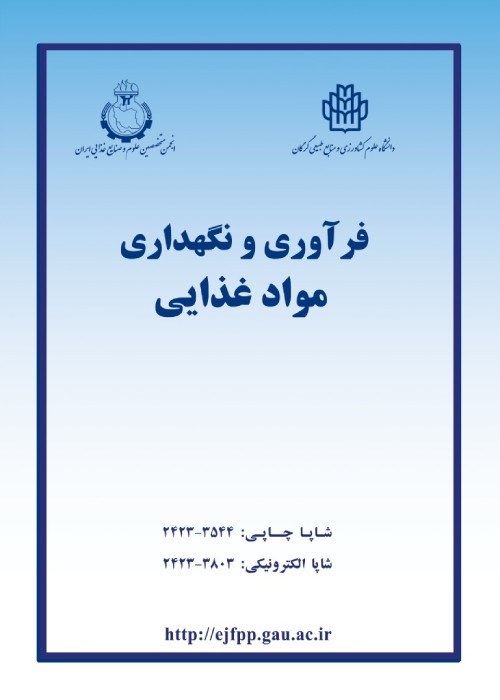Expression of plant insulin in probiotic yeast Saccharomyces boulardii
Author(s):
Article Type:
Research/Original Article (دارای رتبه معتبر)
Abstract:
Background and objectives
Diabetes mellitus is a chronic disorder in carbohydrate, fat and protein metabolism. Its characteristic is an increase in blood sugar in the patient. The long-term complications of this disease is cardiovascular, renal failure and neurological activity. The use of herbal medicines for the treatment of diabetes is increasing day by day and this has made it more important to recognize the effective herbal medicine. Herbal remedies have been taken into consideration because of fewer complications, reasonable prices, and availability of chemical drugs. The Momordica charantia (Linn Family: Cucurbaceae), whose fruit is known as Karela or bittergourd, is an important anti-diabetic plant. One of the anti-diabetic agents of Karela is Polypeptid-P (p- insulin), a 172 amino acid. The content of polypeptide-P in cultivated plants is relatively low so gene cloning and expression of this polypeptide in microorganism is a quick and useful alternative for solving such problem. The probiotic host has the advantage that after the production of target protein, it is not necessary to purify it but producing recombinant protein in other expression hosts need to be purified. Therefore, in this study p- insulin gene was optimized and expressed in probiotic yeast Saccharomyces boulardii. Material and method
In this research, the sequence of p- insulin gene was optimized for both codon bias and secondary structure of mRNA to effectively express in the probiotic yeast Saccharomyces boulardii. The optimized gene was cloned into the pESC expression vector under Gal10 promoter and transformed to competent cell. Recombinant yeast was extracted DNA then the PCR reaction was done by p- insulin specific primers. Recombinant yeast was induced by galactose and production of P-insulin protein in the recombinant yeast cytoplasm was verified by SDS-PAGE and mass spectrometry. Results
A 350 base pair production was amplified by p-insulin specific primers in the polymerase chain reaction. SDS-PAGE electrophoresis pattern was compared host S. boulardii and transformed S. boulardii carrying pESC/p-insulin construct. Electrophoresis results showed that the 18.5 KD molecular weight p- insulin protein differential band was expressed just in the recombinant yeast and also mass spectrometry results confirmed differential band as a p- insulin protein. Conclusion
In this study, probiotic yeast Saccharomyces boulardii was used as a successful host to producing p- insulin protein for the first time. This research showed that probiotic yeast S. boulardii can used as a suitable host cell to producing other products in the food and pharmaceutical industries.Keywords:
Language:
Persian
Published:
Electronic Journal of Food Processing and Preservation, Volume:12 Issue: 1, 2020
Pages:
1 to 16
https://magiran.com/p2199791
دانلود و مطالعه متن این مقاله با یکی از روشهای زیر امکان پذیر است:
اشتراک شخصی
با عضویت و پرداخت آنلاین حق اشتراک یکساله به مبلغ 1,390,000ريال میتوانید 70 عنوان مطلب دانلود کنید!
اشتراک سازمانی
به کتابخانه دانشگاه یا محل کار خود پیشنهاد کنید تا اشتراک سازمانی این پایگاه را برای دسترسی نامحدود همه کاربران به متن مطالب تهیه نمایند!
توجه!
- حق عضویت دریافتی صرف حمایت از نشریات عضو و نگهداری، تکمیل و توسعه مگیران میشود.
- پرداخت حق اشتراک و دانلود مقالات اجازه بازنشر آن در سایر رسانههای چاپی و دیجیتال را به کاربر نمیدهد.
In order to view content subscription is required
Personal subscription
Subscribe magiran.com for 70 € euros via PayPal and download 70 articles during a year.
Organization subscription
Please contact us to subscribe your university or library for unlimited access!


